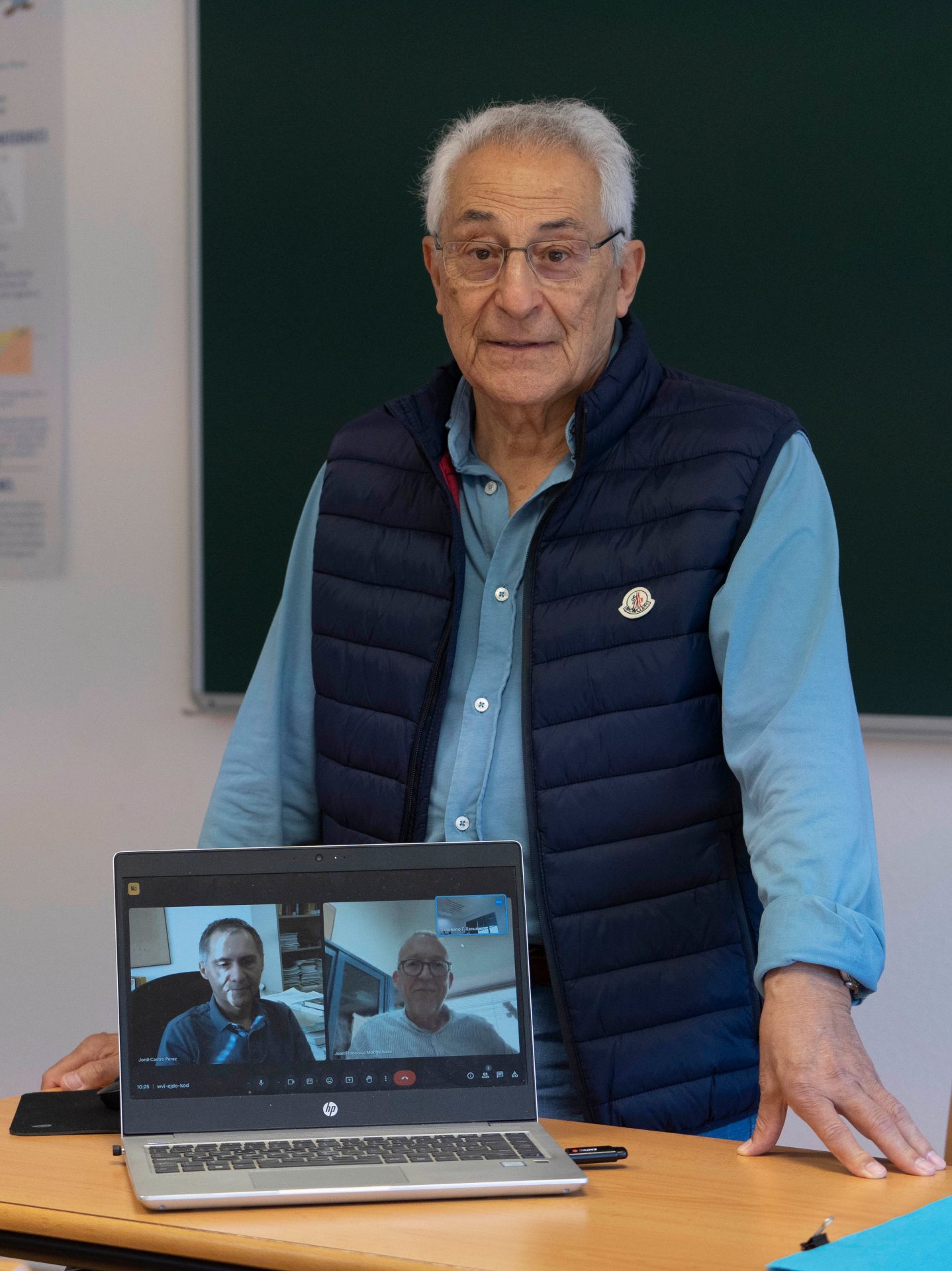
Jordi Castro Pérez, Laureano Escudero Bueno and Juan Monge Ivars
SPANISH SOCIETY OF STATISTICS AND OPERATIONS RESEARCH (SEIO)-BBVA FOUNDATION AWARDS
Best methodological contribution in the operations research field
2024
For their paper "On solving large-scale multistage stochastic optimization problems with a new specialized interior-point approach," published in the European Journal of Operational Research, which the committee described as "an outstanding methodological contribution to the Operations Research field."
CONTRIBUTION
When we lack precise knowledge of the data affecting a decision, stochastic optimization algorithms can be a great help. However they tend to involve multiple variables and equations that slow down the calculation process. Researchers Jordi Castro, Professor of Statistics and Operations Research at BarcelonaTech (UPC); Laureano Escudero, a retired professor and ad honorem research fellow at Rey Juan Carlos University (URJC); and Juan Monge, Professor of Statistics and Operations Research at Miguel Hernández University of Elche, have developed a new mathematical optimization method for decision-making under uncertainty that enables them to run such calculations far faster than before.
The results of their work appear in the paper “On solving large-scale multistage stochastic optimization problems with a new specialized interior-point approach,” published in the European Journal of Operational Research.
“A problem with up to 800 million variables and hundreds of millions of data may take a month to solve, but our algorithm needs only one day plus a few hours of the day after,” Escudero explains. “That means we can solve problems that were once beyond our reach, while at the same time cutting back on CO2 emissions from the computers performing the calculations.”
As well as improving renewable energy utilization, boosting efficiency in logistics and even facilitating detection of organ transplant compatibility, the researcher believes the new methodology holds out exciting potential in the public sector: “A paradigm of resource utilization in a situation of scarce resources, in this case tax revenues. These techniques have had little take-up in this setting, which is where they can yield the best results.”
Escudero believes society should wake up to the enormous usefulness of methodologies like that developed by his team, especially at a time like now when many strategic decisions rely on quantitative data. Above all, he insists, we need to acquire a critical sense of the real value of the conclusions drawn from data: “Some results are useless, and others are untrue because of inherent bias. People need some degree of knowledge to distinguish what is useful from what is not, and what is true from what is false.”
